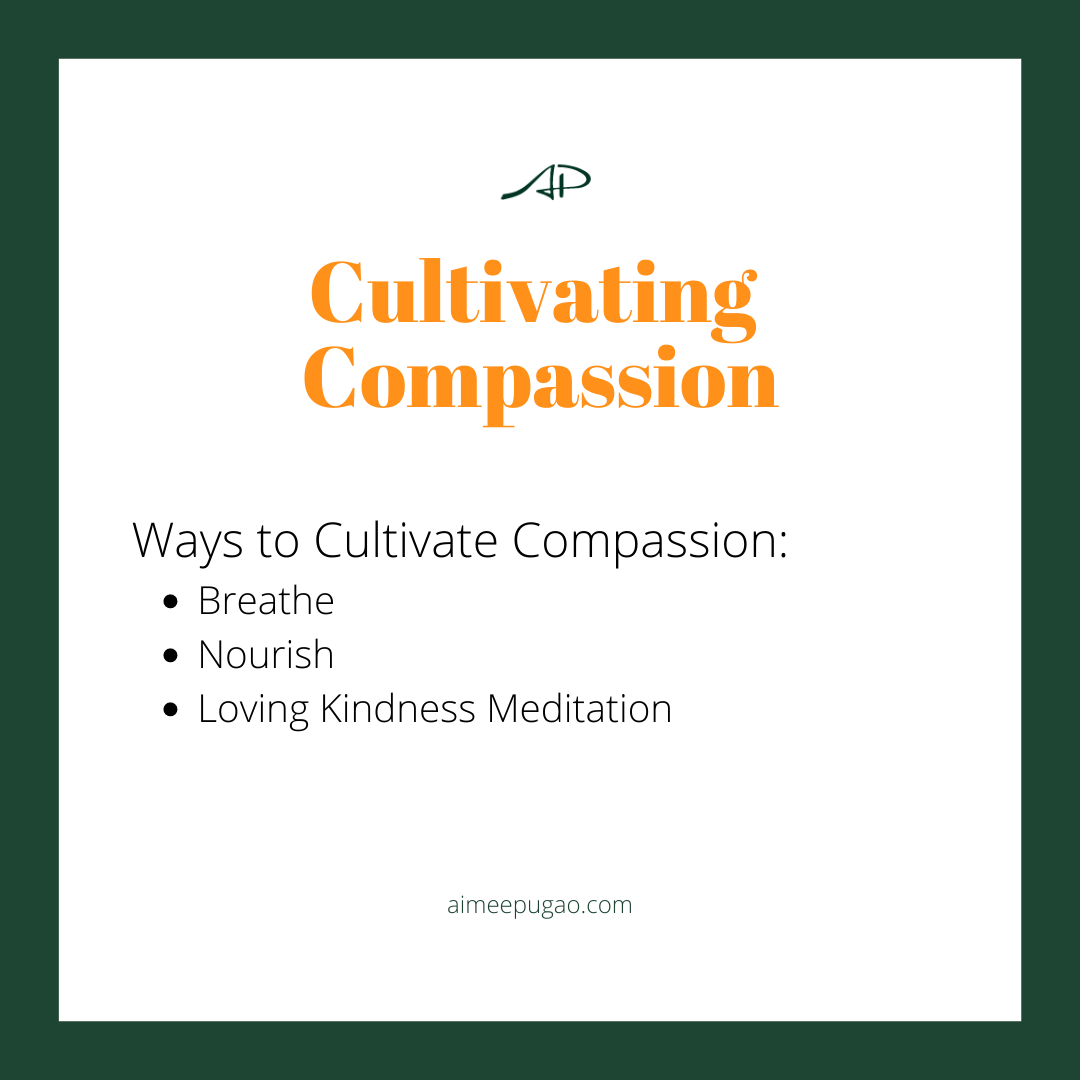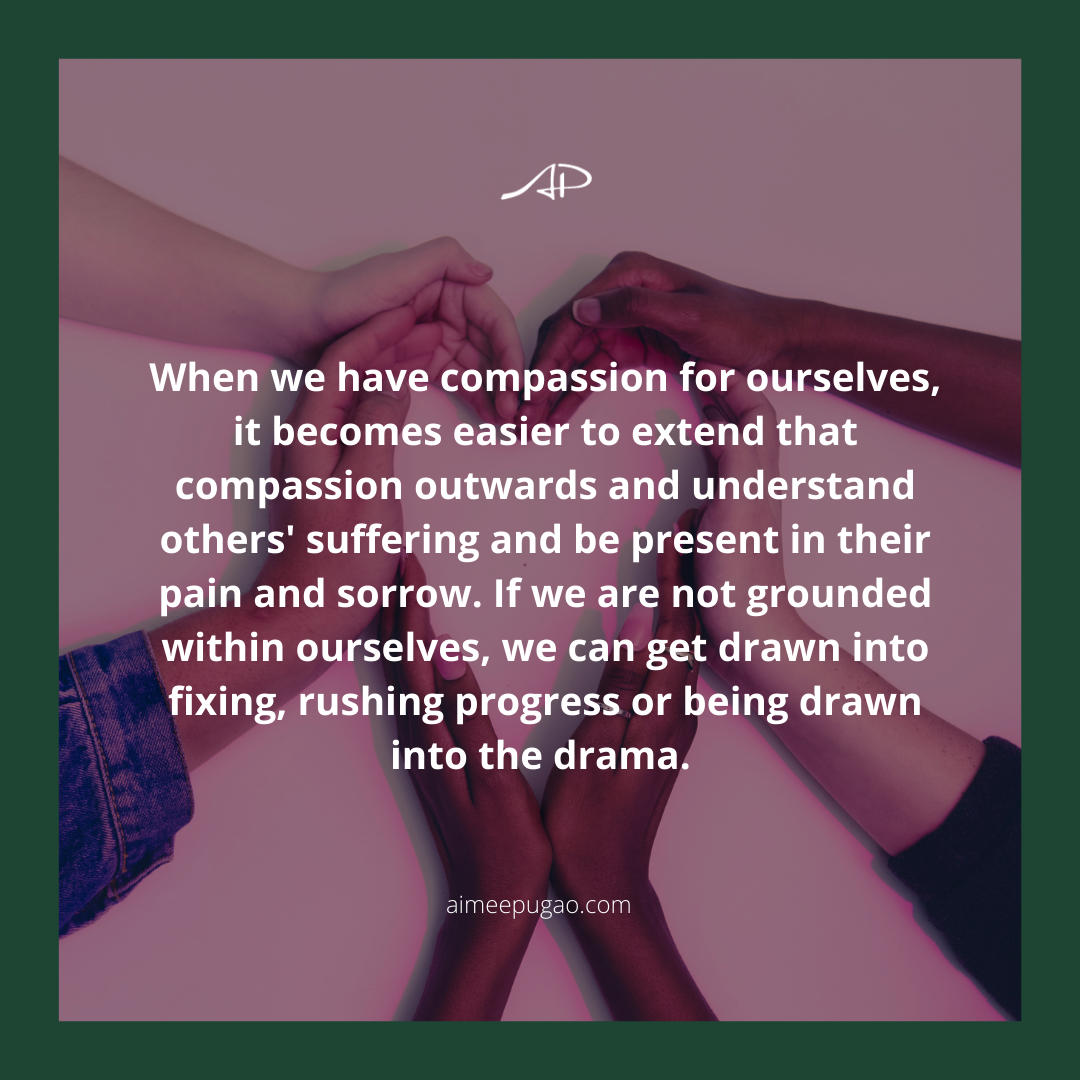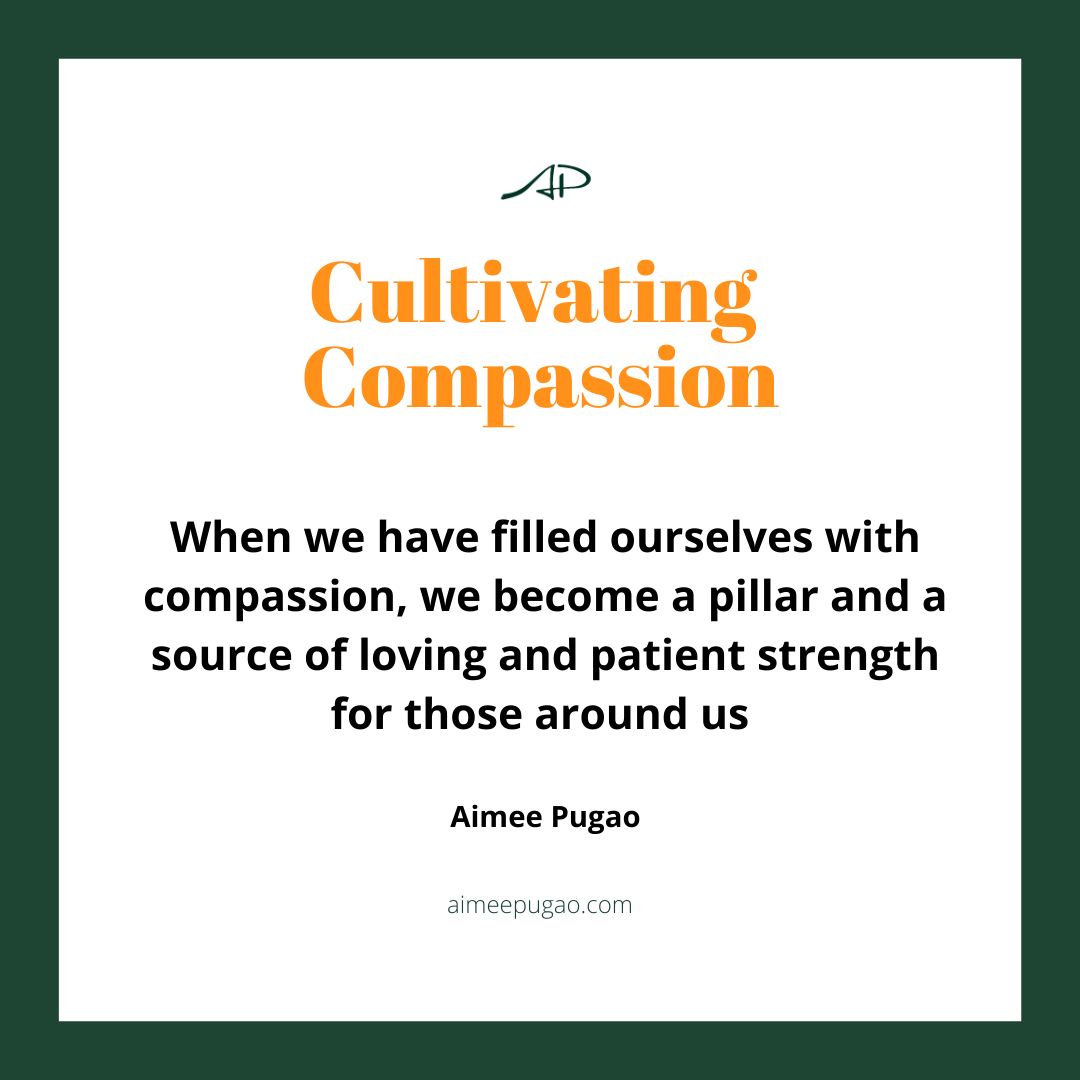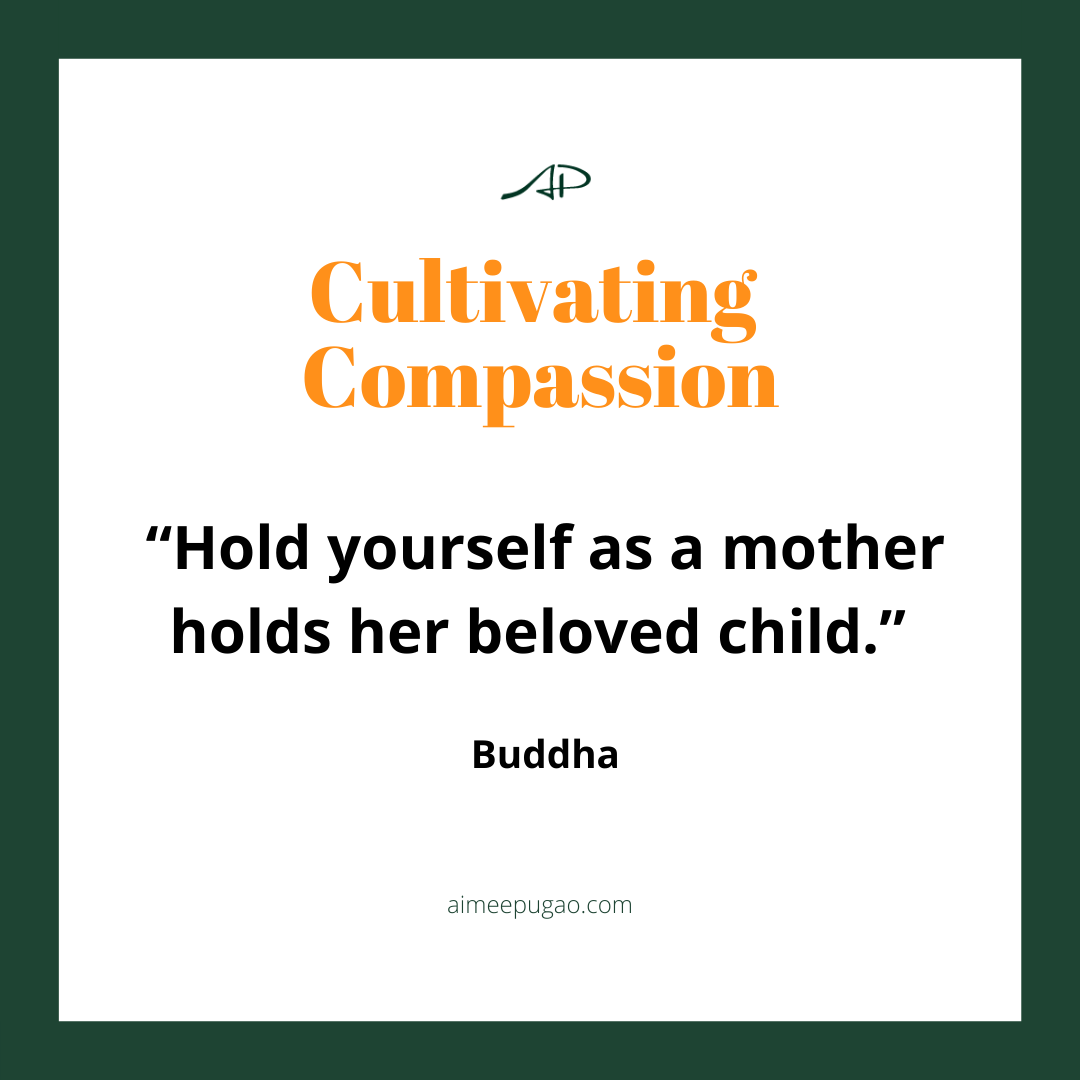Compassion is embedded in the classical teachings of the Buddhist tradition and many other religions such as Christianity, Catholicism, Judaism, Islam, Hinduism, and it’s even practiced through Stoic philosophy. The study of compassion and the power it holds has been making its way into psychology and popularized in mainstream society by researchers and professors such as Dr. Kristin Neff, a professor at the University of Texas in Austin.
What is compassion?
The concept of compassion is the response to pain or sorrow. It includes providing kindness, generosity, patience, understanding, and acceptance. It embodies that we are all interconnected, we all have suffered, at one time or another, and when others suffer, we also suffer. When we provide compassion, we help others overcome distress and move closer to healing and liberation.
It’s essential to provide compassion for others, but it is more important to learn how to primarily offer ourselves compassion. Only when we learn to fill ourselves up with compassion is when we are entirely able to be present for others without judging, feeling drained, or tired.
How to provide ourselves with compassion?
Many of us have harsh inner critics that put us down for our mistakes and imperfections. When we treat ourselves in such as way, we are likely to treat others impatience and unable to be present. We have all felt feelings of regret, sadness, loneliness. When we heal ourselves and treat ourselves well, we have that energy to provide to others.
When we have compassion for ourselves, we treat ourselves with kindness, patience, understanding, and acceptance. We forgive ourselves for our wrongdoings; we speak to ourselves with gentleness and respect.
“Hold yourself as a mother holds her beloved child.” —Buddha
There are several techniques in which we can provide ourselves compassion. A few includes:
- Breathe: Witness how we are feeling. Rather than analyze and get into our minds, take a few deep breaths and get into the body. By getting into the body calms our thinking mind and brings us back to the present moment.
- Nourish: Ask the question, What is it that I need at this moment? I like to take myself on a nature walk or make a date to do something I enjoy.
- Loving Kindness Meditation: This is a popular self-care technique. The regular practice of this meditation can increase the capacity for compassion, forgiveness, connection to others, self-acceptance. The meditation entails asking ourselves to send love, peace, and happiness primarily to ourselves, then our loved ones, following our acquaintances, those we are having trouble with, and then all beings.
The Power of Compassion
When we have compassion for ourselves, it becomes easier to extend that compassion outwards and understand others’ suffering and be present in their pain and sorrow. If we are not grounded within ourselves, we can get drawn into fixing, rushing progress or being drawn into the drama. When we have filled ourselves with compassion, we become a pillar and a source of loving and patient strength for those around us.
Knowing When We Need Nourishment
Whenever we find ourselves feeling drained, easily annoyed, quick to judge others. It’s a sign that we need to give ourselves more nourishment. It’s a signal that we are not grounded deeply enough within ourselves.
It’s okay to reach out to our supportive community or retreat within ourselves. I turn to specific friends and mentors who are well along their journey towards inner peace. When they are not available, I also turn to books, mindfulness teachings and practice the techniques mentioned above. I also sometimes slip as well and fall into my sadness or get pulled into the conflict. When that happens, and I’m able to notice eventually. I provide myself with a lot of forgiveness and perhaps apologize to those I have ignored or lashed out at.
If we want to be a light for others to see their path, we must first cultivate the source of that light. Be gentle with ourselves and know where our current limitations are. Our limits for compassion may naturally extend with training.
Cultivating self-compassion is a practice, and we aren’t always going to get it right the first time, second time or third. Even seasoned practitioners of self-compassion slip and fall once in a while. Our current habits might be stronger than our aspirations. We might want to be compassionate but we forget and are so used to getting caught up and reverting back to our old habits. Provide ourselves with loving-kindness, since we are all human.







